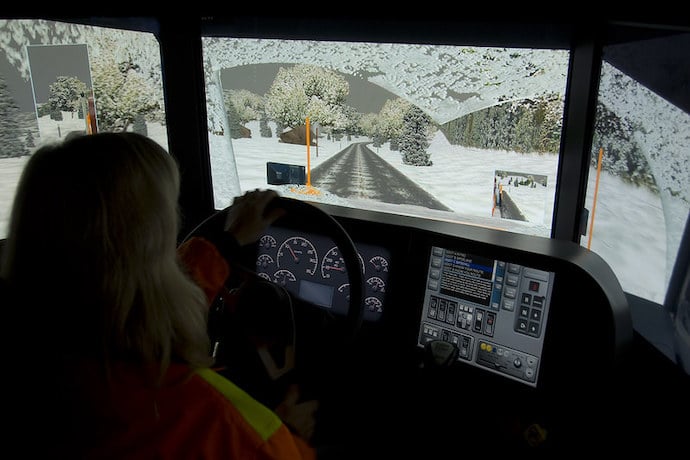One of the coolest things, to me at least, about computing is the ability to run simulations.
Okay, so first off what do we even mean when we say simulation?
Well, it means that you’re mimicking something that either does exist or you’re curious what would happen if it did. You’re trying to create a program that acts like the thing you’re trying to simulate, but cutting away the details that don’t actually matter.
So for example, a simulation of planets orbiting a star doesn’t need to keep track of what the atmospheres of these planets are like, whether or not there’s liquid water on the planets, and definitely not whether the inhabitants of any of these planets have figured out how to make a good taco.
Similarly, if you’re simulating how, say, a disease spreads in a population you don’t need to figure out in advance what the names and favorite songs of the people in the simulation are. You might, though, need to know what kinds of jobs they have and how they travel around town each day!
Simulations are used for all sorts of things in all of the sciences: everything from predicting whether mechanical parts on a spaceship can survive re-entry into the atmosphere, to whether a detector in a giant physics experiment is capable of detecting the rare particles physicists want to study, to predicting the weather, to testing out theories around how the most fundamental parts of our bodies are built in all their complex geometry.
Now, a question that might have occurred to you is “hey, what’s the difference between ‘a simulation’ and, like, a physics engine in a video game?” and the short answer to that question is, honestly, there isn’t one. Well, that’s a slight simplification because simulations for science and simulations for entertainment tend to emphasize very different things.
For example, take a Mario game. Mario jumps and the game simulates gravity to make him fall. The game has to at least sort-of simulate gravity accurately or else it would look really wrong to our eye but if you’ve played one of these games you’ll notice that you can change the direction you’re falling in mid-air. That is very much not how things work in the real world!
Indeed, if you doubt me, feel free to—safely—try running and jumping in the air and seeing if you can make yourself move backwards mid-air like Mario would.
So why do characters in platformers move this way if it’s not accurate to how the real world works? The answer is pretty simple: because it’s more fun! Controlling where you land is more important for the challenge of a game than making it absolutely realistic.
This is important for simulation not just in games but art more generally. Simulations of vibrating strings and surfaces are used to create synthesized instruments, but sometimes you don’t want something to sound realistic because that can get boring. You want weird, different, aesthetic.
Science, on the other hand, needs accuracy while still being efficient enough to run well. This leads to the incredibly fascinating fields of numerical methods and applied mathematics. There’s a lot of creativity in learning how to make simulations that are both accurate and efficient.
But, the last thing I want to say is that learning to write simulations is a way to use programming to learn more about all the sciences; a way to create your own first-hand experience and experiments about everything from acoustics to city planning, physics to chemistry, epidemiology to climate science.
Learn More
Computer Simulation
https://www.britannica.com/technology/computer-simulation
Computer Modeling and Simulation
https://ors.od.nih.gov/OD/OQM/cms/Pages/default.aspx
Simulation
https://en.wikipedia.org/wiki/Simulation
Simulation Facts for Kids
https://kids.kiddle.co/Simulation
Fun Computer Simulations
https://kidskonnect.com/fun/computer-simulations/
Physics Engine
https://en.wikipedia.org/wiki/Physics_engine
Simbucket Science Simulations
https://teachbesideme.com/simbucket-science-simulations/

